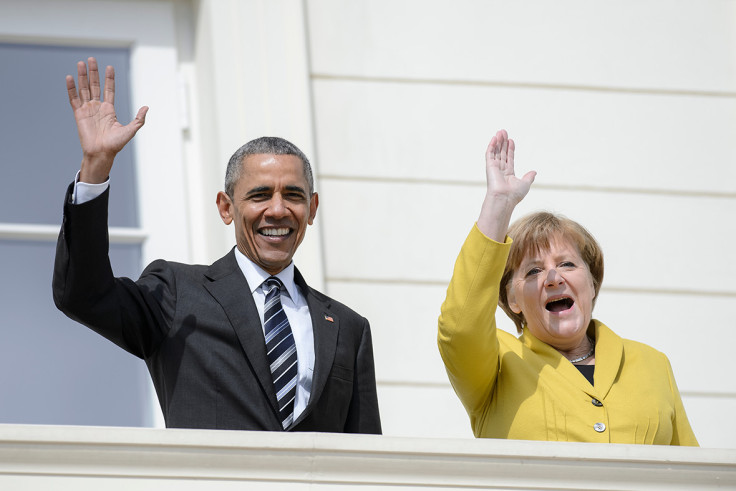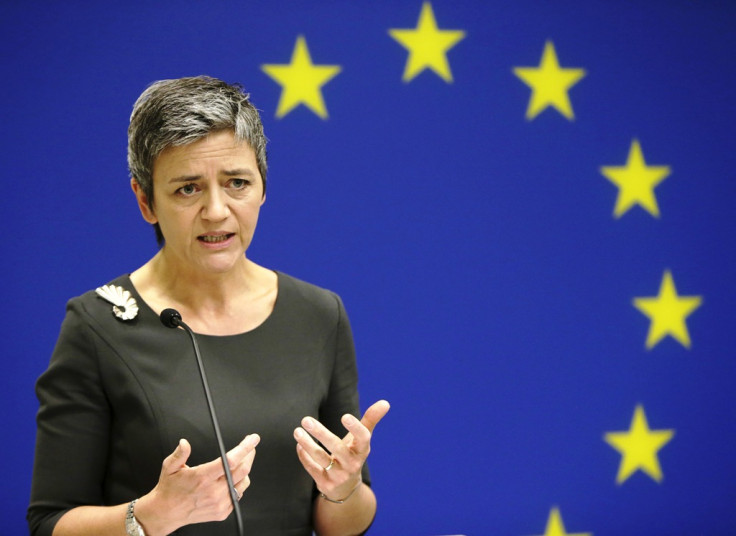Rough trade: US and EU battle it out over tax reforms and international markets
Back taxes and trade talks have heated tensions between the US and EU.

Tensions between the US and the European Union have been cranked up over the last couple of days.
The European Commission ordered Apple to pay €13bn (£11bn) in back taxes to Ireland earlier this week, because it said previous agreements struck between the republic and the US tech giant broke European rules on state aid.
Ireland's finance minister and Apple both say they will appeal the decision.
The US Treasury Department warned: "The Commission's actions could threaten to undermine foreign investment, the business climate in Europe and the important spirit of economic partnership between the US and the EU."
And over the last few days senior European politicians have queued up to say that the three-year talks on the Transatlantic Trade and Investment Partnership (TTIP), have ground to a halt.
An agreement here is supposed to eliminate most tariffs and make it easier for American and European businesses to comply with regulations when selling goods into the other market. Supporters say the deal could deliver economic gains of more than $100bn on both sides of the Atlantic.
But over recent days German Economy Minister Sigmar Gabriel said negotiations have "effectively failed". French President Francois Hollande admitted talks have become "bogged down".
But it was French Trade Minister Matthias Fekl who highlighted the depth of division between the EU and US when he said American negotiators "give nothing, or just crumbs".
Some economists say part of the problem with the talks is that when the US or the EU negotiate with smaller trade blocs, it is easier to enforce their practises as common standards.
But in key areas such as GM crops, data protection and financial services, common ground between the US and the EU cannot be reached.
The Institute of Directors head of Europe and trade policy Allie Renison told IBTimes UK: "This would be the first time that each of these blocs would be talking to a group of a similar size. This makes it harder for either side to blink first."
There is also widespread concern about a potential clause in the deal that would allow tribunals where foreign investors would be able to sue a host country government if its policies breached the agreement and caused losses to the investor.

"The US has looser standards in a range of areas that also include workers' rights and health and safety," TUC trade policy officer Rosa Crawford told IBTimes UK.
"We see it as a very good thing that both sides are stepping back and will hopefully take a fresh look at these talks."
TTIP talks began in June 2013 and both sides had hoped that they would be concluded by the end of this year, contributing to US President Barack Obama's legacy when he leaves office.
But not even the most fervent supporters of TTIP think that negotiations will make that timetable, when key areas such as public procurement, recognition of professional qualifications and certification of medicine are still without agreement.
The next 18 months will see elections in the US and across Europe that could lead to new parties coming to power who are less interested in broad-ranging trade deals and more concerned with protectionist measures.
In the US Republican presidential candidate Donald Trump has called for a 45% tariff on imports from China, and has criticised many of the country's existing trade deals.
Democratic candidate Hillary Clinton has also expressed reservations about a number of US trade agreements. Elections take place in both France and Germany, and both could return new governments with more conservative trade policies.
This would be the first time that each of these blocs would be talking to a group of a similar size. This makes it harder for either side to blink first.
Since the financial crisis many governments across the world carry higher debts, as a result rescuing key industries and having to pump cash into their economies to keep them afloat. This means that governments are constantly searching for additional cash.
US firms have $1.2tr of cash stashed in low-tax regimes outside of the US, which has one of the world's highest corporate tax rates at 39%.
Apple, Microsoft, Google, Cisco and Oracle between them held $504bn at the end of last year, according to ratings agency Moody's.
The US is looking at plans to allow these firms to repatriate this cash, bringing it under the American tax system.
This explains US anger at the EC's order for Apple to hand over €13bn in back taxes to Ireland, as they saw this as cash earmarked for US coffers.
The EU and the US look set to enter a difficult period where they attempt to hammer out a complex trade deal and battle to tax an offshore pot of gold squirrelled away by the world's largest corporations.
© Copyright IBTimes 2025. All rights reserved.






















